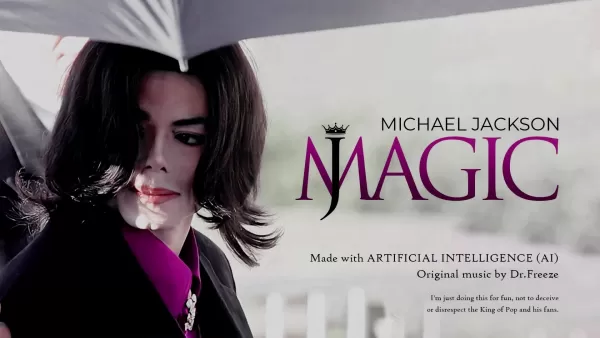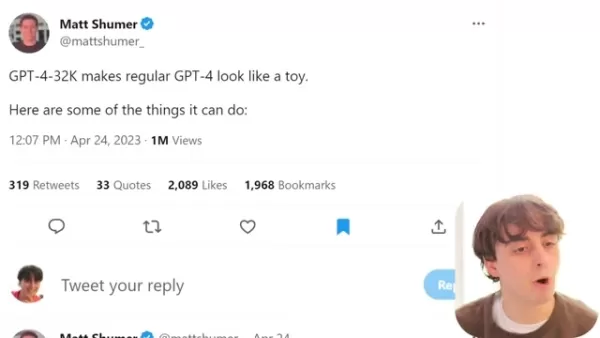Decentralized AI: Revolutionizing Technology with Blockchain
Artificial intelligence continues to fuel innovation, reshaping industries and workflows. However, its growing reliance on centralized infrastructure raises concerns about vulnerabilities, accessibility, and governance risks.
Cryptocurrencies highlight the value of decentralization, showing the dangers of concentrating computing power and data in a few facilities. While centralized systems may appear efficient, they create significant weaknesses and governance challenges.
Centralized AI systems are highly susceptible to disruptions, as their large server farms represent single points of failure that could halt numerous applications. These data centers, powering models like ChatGPT, are prime targets for cyberattacks due to their vast data reserves.
Centralized servers also complicate regulatory compliance. When an AI system operates in one country, it’s subject to that nation’s laws, creating issues for users in regions with different data privacy and sovereignty regulations. Moreover, centralization fosters monopolization, with companies like OpenAI, Google, and Anthropic guarding their advanced AI training processes. This risks creating a future where a few corporations control a critical technology, limiting access to those who can afford their prices.
Decentralized AI offers a solution by distributing infrastructure across a broad network of users, eliminating single points of failure. It promotes transparency, user control, and universal access. Enter AI blockchains—the backbone of a more resilient, fair, and sustainable AI ecosystem.
Key Features of AI Blockchains
The fusion of blockchain and AI unlocks immense potential through their complementary strengths. Blockchain’s immutability ensures data integrity and trust for AI systems, while AI enhances automation and decision-making in blockchain networks. For example, in supply chains, blockchain provides transparency, while AI optimizes logistics by predicting demand. In healthcare, blockchain secures patient records, and AI aids diagnostics through image analysis and predictive tools.
1: Transparent Data Tracking
AI blockchains enable transparent data tracking via “proof-of-attribution” mechanisms, which identify and credit data sources used by AI systems, ensuring fairness. This approach clarifies who provided the data, its role in AI outputs, its added value, and appropriate compensation for contributors.
For instance, OpenLedger’s reward system compensates data creators with digital tokens whenever their data is used by a model. Unlike centralized AI firms that collect data without consent, this model ensures creators are included in the value chain.
2: AI Royalties and Monetization
Imagine a decentralized chatbot answering a query using content from a Substack or Medium post. The system logs the data usage and, via smart contracts, automatically pays the content creator in tokens. This fosters a new creator economy where individuals develop specialized datasets for AI, hosted on blockchains, ensuring their contributions are recognized and rewarded.
3: Open AI Development Cycles
Blockchain-based AI development is transparent, from initial proposals to model training and deployment. This openness fosters collaborative, community-owned models governed democratically, where token holders vote on new features, ensuring user-driven innovation.
4: Scalable, Cost-Effective Infrastructure
AI blockchains operate on decentralized infrastructure powered by users. For example, Render Network leverages idle GPU capacity from participants’ devices, pooling these resources for AI applications. Developers gain affordable access to computing power, while contributors earn tokenized rewards.
OpenLedger enhances efficiency with OpenLoRA, a scalable framework that runs multiple fine-tuned AI models on a single GPU block, reducing costs and increasing accessibility for advanced AI applications.
Why AI Blockchains Are Critical
Most AI services today operate within opaque, centralized systems controlled by a few major organizations. This concentration of power undermines AI’s potential to democratize technology. Companies like Google, OpenAI, and Microsoft could dominate societies, retaining all revenue while disrupting jobs.
Decentralized AI networks counter this risk. AI’s transformative power—reshaping workplaces, mobility, healthcare, and personalized experiences—is too significant to be controlled by a few corporations. AI blockchains ensure trust, distribute control, and encourage broad participation in development.
These networks foster grassroots innovation, allowing anyone to propose ideas and collaborate with communities. Decentralized governance aligns development with collective needs, not corporate profits, creating a diverse, accessible AI landscape while preventing misuse.
Preventing AI Monopolization
AI’s rapid advancement poses a real risk of monopolization, which could lead to misuse. AI blockchains offer a path to open, collaborative, and decentralized systems, with safeguards to prevent abuse.
Building this future requires coordination across data, training, and infrastructure. Transparent attribution incentivizes cooperation, ensuring contributors are recognized and rewarded, paving the way for an inclusive technological revolution.
Related article
 AI-Powered Music Innovation: Exploring Michael Jackson-Inspired Tracks
The fusion of artificial intelligence (AI) and music is unlocking groundbreaking opportunities. AI's capacity to analyze patterns, replicate styles, and produce original compositions is reshaping poss
AI-Powered Music Innovation: Exploring Michael Jackson-Inspired Tracks
The fusion of artificial intelligence (AI) and music is unlocking groundbreaking opportunities. AI's capacity to analyze patterns, replicate styles, and produce original compositions is reshaping poss
 Exploring Serenity Through Hawaiian Lullabies
In our fast-paced world, finding moments of calm and inner peace can feel elusive. Yet, cultural traditions worldwide offer pathways to tranquility. Hawaiian lullabies, with their gentle melodies and
Exploring Serenity Through Hawaiian Lullabies
In our fast-paced world, finding moments of calm and inner peace can feel elusive. Yet, cultural traditions worldwide offer pathways to tranquility. Hawaiian lullabies, with their gentle melodies and
 GPT-4 32K: Transforming AI with Advances in Music, Safety, and Open Source
The realm of artificial intelligence is advancing rapidly, with innovative models reshaping various industries. The GPT-4 32K model stands out as a pivotal development, set to transform music, softwar
Comments (0)
0/200
GPT-4 32K: Transforming AI with Advances in Music, Safety, and Open Source
The realm of artificial intelligence is advancing rapidly, with innovative models reshaping various industries. The GPT-4 32K model stands out as a pivotal development, set to transform music, softwar
Comments (0)
0/200
Artificial intelligence continues to fuel innovation, reshaping industries and workflows. However, its growing reliance on centralized infrastructure raises concerns about vulnerabilities, accessibility, and governance risks.
Cryptocurrencies highlight the value of decentralization, showing the dangers of concentrating computing power and data in a few facilities. While centralized systems may appear efficient, they create significant weaknesses and governance challenges.
Centralized AI systems are highly susceptible to disruptions, as their large server farms represent single points of failure that could halt numerous applications. These data centers, powering models like ChatGPT, are prime targets for cyberattacks due to their vast data reserves.
Centralized servers also complicate regulatory compliance. When an AI system operates in one country, it’s subject to that nation’s laws, creating issues for users in regions with different data privacy and sovereignty regulations. Moreover, centralization fosters monopolization, with companies like OpenAI, Google, and Anthropic guarding their advanced AI training processes. This risks creating a future where a few corporations control a critical technology, limiting access to those who can afford their prices.
Decentralized AI offers a solution by distributing infrastructure across a broad network of users, eliminating single points of failure. It promotes transparency, user control, and universal access. Enter AI blockchains—the backbone of a more resilient, fair, and sustainable AI ecosystem.
Key Features of AI Blockchains
The fusion of blockchain and AI unlocks immense potential through their complementary strengths. Blockchain’s immutability ensures data integrity and trust for AI systems, while AI enhances automation and decision-making in blockchain networks. For example, in supply chains, blockchain provides transparency, while AI optimizes logistics by predicting demand. In healthcare, blockchain secures patient records, and AI aids diagnostics through image analysis and predictive tools.
1: Transparent Data Tracking
AI blockchains enable transparent data tracking via “proof-of-attribution” mechanisms, which identify and credit data sources used by AI systems, ensuring fairness. This approach clarifies who provided the data, its role in AI outputs, its added value, and appropriate compensation for contributors.
For instance, OpenLedger’s reward system compensates data creators with digital tokens whenever their data is used by a model. Unlike centralized AI firms that collect data without consent, this model ensures creators are included in the value chain.
2: AI Royalties and Monetization
Imagine a decentralized chatbot answering a query using content from a Substack or Medium post. The system logs the data usage and, via smart contracts, automatically pays the content creator in tokens. This fosters a new creator economy where individuals develop specialized datasets for AI, hosted on blockchains, ensuring their contributions are recognized and rewarded.
3: Open AI Development Cycles
Blockchain-based AI development is transparent, from initial proposals to model training and deployment. This openness fosters collaborative, community-owned models governed democratically, where token holders vote on new features, ensuring user-driven innovation.
4: Scalable, Cost-Effective Infrastructure
AI blockchains operate on decentralized infrastructure powered by users. For example, Render Network leverages idle GPU capacity from participants’ devices, pooling these resources for AI applications. Developers gain affordable access to computing power, while contributors earn tokenized rewards.
OpenLedger enhances efficiency with OpenLoRA, a scalable framework that runs multiple fine-tuned AI models on a single GPU block, reducing costs and increasing accessibility for advanced AI applications.
Why AI Blockchains Are Critical
Most AI services today operate within opaque, centralized systems controlled by a few major organizations. This concentration of power undermines AI’s potential to democratize technology. Companies like Google, OpenAI, and Microsoft could dominate societies, retaining all revenue while disrupting jobs.
Decentralized AI networks counter this risk. AI’s transformative power—reshaping workplaces, mobility, healthcare, and personalized experiences—is too significant to be controlled by a few corporations. AI blockchains ensure trust, distribute control, and encourage broad participation in development.
These networks foster grassroots innovation, allowing anyone to propose ideas and collaborate with communities. Decentralized governance aligns development with collective needs, not corporate profits, creating a diverse, accessible AI landscape while preventing misuse.
Preventing AI Monopolization
AI’s rapid advancement poses a real risk of monopolization, which could lead to misuse. AI blockchains offer a path to open, collaborative, and decentralized systems, with safeguards to prevent abuse.
Building this future requires coordination across data, training, and infrastructure. Transparent attribution incentivizes cooperation, ensuring contributors are recognized and rewarded, paving the way for an inclusive technological revolution.
 AI-Powered Music Innovation: Exploring Michael Jackson-Inspired Tracks
The fusion of artificial intelligence (AI) and music is unlocking groundbreaking opportunities. AI's capacity to analyze patterns, replicate styles, and produce original compositions is reshaping poss
AI-Powered Music Innovation: Exploring Michael Jackson-Inspired Tracks
The fusion of artificial intelligence (AI) and music is unlocking groundbreaking opportunities. AI's capacity to analyze patterns, replicate styles, and produce original compositions is reshaping poss
 Exploring Serenity Through Hawaiian Lullabies
In our fast-paced world, finding moments of calm and inner peace can feel elusive. Yet, cultural traditions worldwide offer pathways to tranquility. Hawaiian lullabies, with their gentle melodies and
Exploring Serenity Through Hawaiian Lullabies
In our fast-paced world, finding moments of calm and inner peace can feel elusive. Yet, cultural traditions worldwide offer pathways to tranquility. Hawaiian lullabies, with their gentle melodies and
 GPT-4 32K: Transforming AI with Advances in Music, Safety, and Open Source
The realm of artificial intelligence is advancing rapidly, with innovative models reshaping various industries. The GPT-4 32K model stands out as a pivotal development, set to transform music, softwar
GPT-4 32K: Transforming AI with Advances in Music, Safety, and Open Source
The realm of artificial intelligence is advancing rapidly, with innovative models reshaping various industries. The GPT-4 32K model stands out as a pivotal development, set to transform music, softwar





























